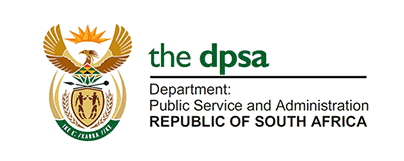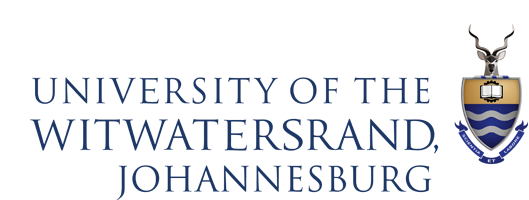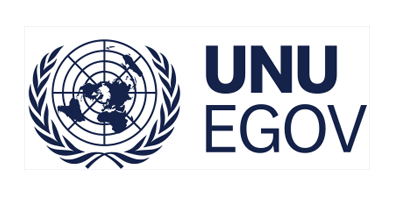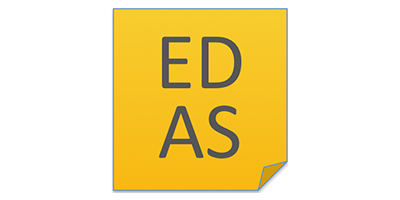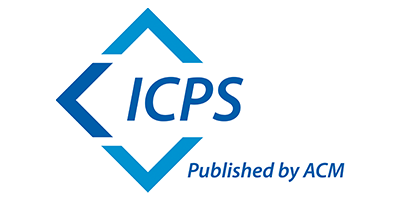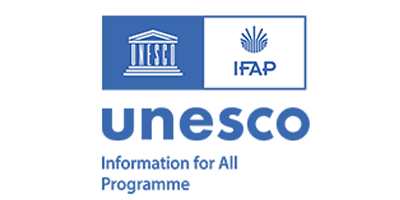▢ Conference Proceedings
All accepted papers will be published in the conference proceedings on the condition that at least one author attends the conference and presents the paper. Currently, the ICEGOV acceptance rate is 41%.
The proceedings will be published in digital format only as part of the ACM International Conference Proceedings Series (ICPS). This series provides a mechanism for publishing the contents of high-quality conferences in the ACM Digital Library (DL), thereby increasing their visibility among the international computing community. ACM has published over 45 000 research papers from over 1350 conferences. All ICPS-published articles are assigned DOIs, enhancing discovery, enabling persistent reference linking and archiving in digital preservation repositories, and ensuring perpetual access. Additionally, the published papers will be indexed in Scopus, Web of Science, Google Scholar, and DBLP – Computer Science Bibliography, among others.
- Title: ICEGOV ’23: Proceedings of the 16th International Conference on Theory and Practice of Electronic Governance
- Editors: Demi GETSCHKO, Ida LINDGREN, Mete YILDIZ
- Publisher: Association for Computing Machinery, New York, NY, United States
- Conference location: Belo Horizonte, Brazil
- Conference date: 26-29 September 2023
- ISBN: 979-8-4007-0742-1
▢ Best Paper Awards
The goal of the ICEGOV Best Paper Awards is to acknowledge excellent research performed by the authors whose papers have been accepted and presented at the conference. The winners in the different categories are announced during the closing ceremony by the Awards Committee Chair. For more information regarding the eligibility criteria and selection process, download the ICEGOV Best Paper Awards Policy.
Three categories are awarded at ICEGOV:
-
- Best Research Paper
- Best Ongoing Research Paper
- Best Short Paper
Best Research Papers 2023:
Nominated
-
- Enterprise Architecture Adoption in Government: A Public Value Perspective, authored by Leif Sundberg, Henrik Florén, Håkan Sundberg
- Digitalization and automation for the sake of IT? Insight from automation initiatives in Swedish municipalities, authored by Daniel Toll, Maria Booth, Ida Lindgren
- Aligning UN Goals and Legal Norms in a Case Weighting System: A Case Study on Environmental Crimes in Italy, authored by Vittoria Pistone, Francesco Sovrano, Biagio Distefano
Winners
Digitalization and automation for the sake of IT? Insight from automation initiatives in Swedish municipalities, by Daniel Toll, Maria Booth, Ida Lindgren
- Justification: This research paper observes a gap between the expectations on the digitalization and automation initiatives run by the Swedish municipalities and the outcomes produced by such initiatives, and decides to study this gap. To this end, it conducts interviews with the employees at three Swedish municipalities to gather their views on the purpose of such initiatives, and analyzes the responses using the Rose at al. (2015) public value framework, uncovering policy-level goals corresponding to the four value propositions from the framework – efficiency, professionalism, service and (rarely) engagement, and other goals not included in the framework. It concludes that the digitalization initiatives can be pursued for the sake of digitalization rather than any policy-level goals. According to the Committee, the paper tackles a relevant problem to many digital government initiatives, conducts a carefully designed study of this problem, and delivers meaningful insights to both digital government research and practice.
Aligning UN Goals and Legal Norms in a Case Weighting System: A Case Study on Environmental Crimes in Italy, by Vittoria Pistone, Francesco Sovrano, Biagio Distefano
- Justification: This research paper reviews the limitations of different manual approaches to weighting of criminal cases, aimed at prioritizing or assigning resources to them in the court system, and proposes a novel Case Weighting System that automates the weighting of criminal cases and accounts for their impact on Sustainable Development Goals (SDGs). The weight of a case represents the volume of societal resources consumed due to crime, and consists of three parameters – crime severity, corporate criminal liability, and whether a crime is related to SDGs. The paper illustrates how the proposed Case Weighting System could be used in the Italian court system to weight environmental crimes, and discusses its applicability in other justice systems. According to the Committee, the paper offers a simple and practical approach to automating the governance of the justice system while accounting for the impact of the crimes on SDGs, demonstrates the feasibility of the approach in the Italian court system, and discusses possible generalization to other justices systems.
Best Ongoing Research Paper 2023:
Nominated
-
- Digital public services based on Bourdieu’s theory of practice: a proposal for a conceptual framework, authored by João Paulo da Silva, Diana Rodrigues
- The Hidden Costs of Digital Self-Service: Administrative Burden, Vulnerability and the Role of Interpersonal Aid in Norwegian and Brazilian Welfare Services, authored by Hanne Rydén, Luiz Andrade
- TwiSP: A framework for exploring polarized issues in Twitter, authored by Gabriela Díaz, Carlos Chesñevar, Elsa Estevez, Ana Maguitman
Winner
Digital public services based on Bourdieu’s theory of practice: a proposal for a conceptual framework, by João Paulo da Silva, Diana Rodrigues
- Justification: This ongoing research paper argues that neither the technological/organizational perspective nor the citizen/service perspective alone account for the complexity and dynamism, particularly the state-society power relationships, present in the implementation of digital public services. The paper proposes a framework based on three concepts of the Bourdieu’s theory of practice – field, habitus and capital – and instantiates them in the digital public service context to observe the effects of implementing digital public services considering such power relationships. According to the Committee, the paper offers a novel theoretical contribution from the sociological perspective to the digital government field, and provides an insightful framework to address existing analytical gap and deepen learning for digital government practitioners and the scholarly community in general.
Best Short Paper 2023:
Nominated
-
- Overdelivery in a Digital Service Implementation on a Tax Recovery Program, authored by Caroline Tuttman, Gabriel Blum, Marie Anne Macadar
- Citizen-centric and trustworthy AI in the public sector: Cases of Finland and Hungary, authored by Claudia Oliveira, Sara Talpo, Noemie Custers, Emilia Miscena, Edwige Malleville
- Ginásio Experimental Tecnológico (GET): promoting pedagogical innovation and the development of student protagonism integrated into the Municipal Education Network of the city of Rio de Janeiro, authored by Helder Yukio Okuno
Winner
Citizen-centric and trustworthy AI in the public sector: Cases of Finland and Hungary, by Claudia Oliveira, Sara Talpo, Noemie Custers, Emilia Miscena, Edwige Malleville
- Justification: This short paper examines the European perspective on the public sector’s adoption of citizen-centric and trustworthy Artificial Intelligence (AI). Starting from the European Union’s AI policy initiatives, it examines how two European countries – Finland and Hungary – pursue human-centric AI development, pointing at the influence of EU enablers and recommendations, particularly on interoperability. According to the Committee, the topic of the study – citizen-centric AI and the context – European Union are well chosen, and the initial results – how one of the leading regions in the world in AI development addresses the why, what and how of trustworthy AI, and how regional-level AI frameworks can drive and enable national action – have strong application and research potential.

